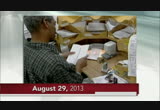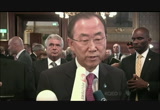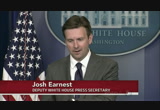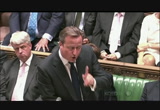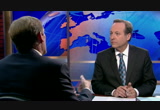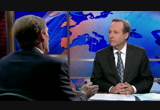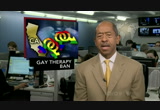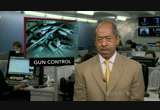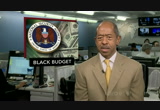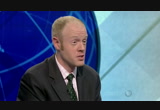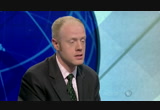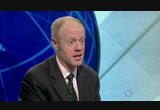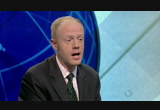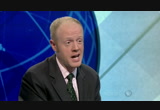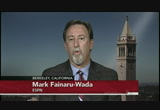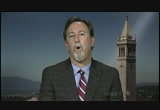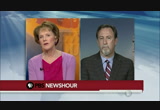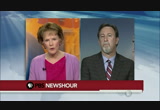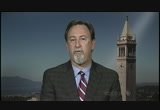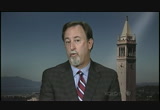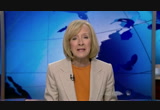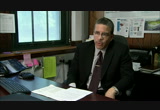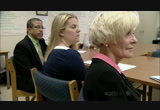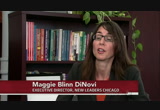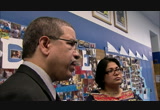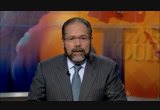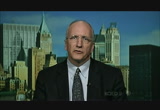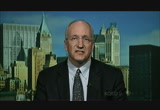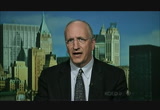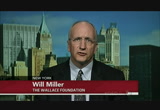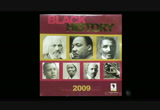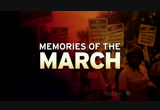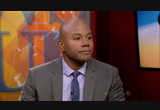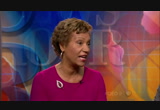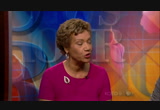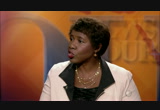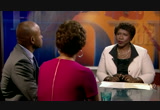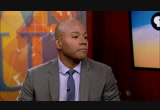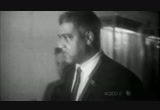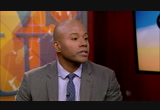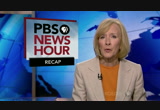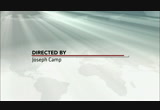tv PBS News Hour PBS August 29, 2013 3:00pm-4:01pm PDT
3:00 pm
captioning sponsored by macneil/lehrer productions >> woodruff: as united nations' inspectors returned to the site of last week's alleged chemical weapons attack in syria, debate heated up today over possible military action. good evening, i'm judy woodruff. >> brown: and i'm jeffrey brown. on the "newshour" tonight: britain's prime minister signaled his country would wait for the u.n.'s findings before joining any attack. we explore the evidence being gathered that could lead to a strike. >> woodruff: then, the i.r.s. announced it will recognize all legally married same-sex couples, regardless of what state they live in. we examine the impact of this shift in federal tax law. >> brown: the n.f.l. agreed to pay $765 million to former players for concussion-related brain injuries. we get the details of the
3:01 pm
proposed settlement. >> woodruff: it's back to school time, but a number of communities face classrooms that are failing their students. we have a report on the important role principals play in education reform. >> brown: and we continue our look at the legacy of the march on washington 50 years on. tonight, reflections on the challenges ahead for martin luther king's vision for a multi-racial democracy. >> 40% of whites don't have friends outside of their own race. so in some ways we're still as segregated as we were 50 years ago and i think that king would be very concerned about that. >> woodruff: that's all ahead on tonight's "newshour." >> major funding for the pbs newshour has been provided by: ♪ ♪
3:02 pm
moving our economy for 160 years. bnsf, the engine that connects us. >> and by the alfred p. sloan foundation. supporting science, technology, and improved economic performance and financial literacy in the 21st century. >> and with the ongoing support of these institutions and foundations. and... >> this program was made possible by the corporation for public broadcasting. and by contributions to your pbs station from viewers like you. thank you. >> brown: the united states worked today to firm up the intelligence behind claims that syria used chemical weapons and to win support for a possible military strike.
3:03 pm
meanwhile, a united nations team began wrapping up its own efforts to find out just what happened last week, in a suburb of the syrian capital. outside damascus, u.n. inspectors made a third trip to the site of an alleged chemical weapons attack. collecting samples in gas masks and protective gear, while the u.n. secretary general, ban ki- moon, said their mission is nearly over. he spoke in vienna. >> they will continue investigation activities until tomorrow, friday and will come out of syria by saturday morning, and will report to me as soon as they come out of syria. >> brown: the inspectors' exit could set the stage for possible military action by the u.s. and other western powers against the syrian regime. today, in washington, the obama
3:04 pm
administration was still marshalling its evidence and still not ready to present it publicly. in his "newshour" interview last night, the president said it's clear who's behind chemical attacks in syria. >> we have concluded that the syrian government in fact carried these out. and if that's so, then there need to be international consequences. >> brown: even so, the associated press quoted multiple u.s. intelligence officials today as saying the evidence is not a slam dunk, and does not yet tie any use of poison gas to president bashar al-assad's inner circle. that brought this response from white house spokesman josh earnest, dismissing suggestions of a split over the intelligence. >> there is a preponderance of publicly available evidence to indicate that the assad regime carried out chemical weapons attacks in syria. that is what the president has said. the vice president said that. the secretary of state said that. we've also seen our partners all around the globe say that. >> brown: the president tasked
3:05 pm
secretary of state john kerry and defense secretary chuck hagel to convey that same message to top lawmakers today. president obama himself spoke by phone with house speaker john boehner. in a letter, boehner had urged him to explain the rationale for any attack on syria. separately, nearly 120 other house members-- 98 republicans and 18 democrats-- wrote to the president, demanding that he seek congressional authorization before any military strike. meanwhile, in london, british prime minister david cameron faced a rising chorus of opposition in parliament to attacking syria. he sought to play down fears of a wider war. >> to me the biggest danger of escalation is if the world community, not just britain but america, and others, stand back and do nothing because i think assad will draw very clear conclusions from that. >> brown: france endorsed that sentiment, and the defense minister signaled his nation's military is poised to act. >> ( translated ): the armed
3:06 pm
forces are in a position to respond to the requests and the decisions of the president once he reaches that point. >> brown: the french and british leaders had already spoken by phone with president obama. today, german chancellor angela merkel discussed the situation with the president. she also talked with russian leader vladimir putin, who's warned against attacking syria before the u.n. inspectors make their report. and, back in damascus, president assad sounded a new note of defiance, saying, "syria will defend itself in the face of any aggression." >> just minutes ago the british house of commons rejected using force against syria. prime minister cameron will not try to override the parliament. we turn now to an experienced weapons inspector who's also investigated and written about what went wrong with intelligence in the past. charles duelfer was a top u.n. inspector in iraq during the 1990s. after the u.s. invasion in 2003 he led the c.i.a.'s iraq survey
3:07 pm
group which continued to look for weapons of mass destruction. he's author of "hide and seek: the search for truth in iraq." welcome. >> thank you. >> brown: i want to get right to this question of what they're calling a slam dunk. how definitive can inspectors, can the intelligence community, and, therefore, government, ever be? >> there's an important distinction between what the inspects can do and what the intelligence community can do. the u.n. weapons inspectors will derive information they believe is unbiased. they may not have the full rawnch of access to secret sources, to potential defectors and so forth that the intelligence community may have, but they are considered unbiased. they have access to victims. they're able to take environmental samples, biological samples. they're able to do a lot, and they'll be able to make a judgment about whether chemical weapons were in fact used. >> brown: okay, so, stay with the inspectors.
3:08 pm
what can-- what do we been what exactly are they looking at right now? what's your assessment of what they're seeing? >> they've had limited time. there aren't that many of them. but they were able to interview a range of people who were in each of these areas, to the extent that they can, about what happened, what types of muumuu nitions were used. they may be able to collect remnants of the munitions which could tell you quite a bit about the type of agents. >> brown: will it tell you who used it? >> if it is a sophisticated rocket or artillery shell, such as the syrian army would have, you can tell. there are different reservoirs for the components of the searin gas if they're there which are made to mix when they're fired. they're able to look at the type of gas, the searin gas. some are more scientisted than others. if it were made up by circumstances an ad hoc group, as some are suggesting is one alternative, they wouldn't have stabilizers or preservatives in
3:09 pm
it. serious syrian army stuff has been on the shelf for a long time. it's like wonder bread. it has something in the agent which will keep it active for years. >> brown: come back to the intelligence community. i say that because the british intelligence just put out a report today saying it is highly likely the regime was responsible for the chemical weapons attack on 21 august. based on? >> presumably, the british and americans have very similar sets of intelligence. they've got presumably agents on the ground. presumably, they can hear what's going on. one would think that the n.s.a., which is so prominent in the news these days slistenning carefully to the types of communications going on. now, that communication can sometimes be ambiguous. but if you put all that together, it can clearly point in the direction of one actor in this, and i think there is probably, as has been saished the preponderance of evidence-- public or not public-- falls on the side of the syrian government did this.
3:10 pm
>> brown: the context is what happened in iraq, where you were involved, where you looked at what happened ooferreds. to what degree as what happened there affected how these kind-- how this kind of work it done? >> well, the weapons inspectors it turned out did a much better job than anybody thought. their teakniques and methods have improved a fair amount. on the other hand, the intelligence community, they've had their fingers burned. they got it massively long in 2002 and 2003. so they are going to be ve reluctant to make categorical statements -- like slam dunk-- to policy makers. they will caveat their language and that will make policy makers' lives more difficult. like 2002-2003, washington is seeing the u.n. processes as a bit of a problem. they're teed up and ready to do, and you hear language coming out of the white house, which in a different time you could equally hear coming out of bush white house, where they're seethe u.n. process-- it's sloark it's
3:11 pm
ponderous, and people can slow down the process. it's an encumbrance. so there are many similarities, but the evidence is much stronger in this case than it was in 2003. much more data. >> brown: when you look at something-- there was an article earlier in "foreign policy" about an intercepted phone call, supposedly between syrian army officials. talking about this attack. does that feel helpful, either on the intelligence side? does that remind you of things from iraq, where you might wonder about it? what disturbs me about that is that it suggests there's a lot of confusion on the part of the syrian government. one one of the nightmare scenarios we have in all this, is all these weapons, which we than they have, can fall out of their control. the one positive thing that anyone can say about bashar is he had control over these weapons. if that's coming apart then we have a problem that's even
3:12 pm
bigger than we thought. >> brown: glou how much does that play into any potential punitive strike of who has control of the weapons at this point? >> this is a huge dilemma for the white house. do you want to make the problems worse? people are thinking of target sets in military jargon. what are you going to blow up? you can blow up the weapons, but maybe it will just disburse them. you might create a bigger mess. you can blow up so-called command and control but doesn't that make the thing even worse? then who is it going to control the system? it's a real dilemma and it depend how you define the problem that the solution is going to fit. >> brown: all right, a lot of questions. charles duelfer, thanks so much. >> thank you. >> woodruff: you can follow the latest developments in syria on our live blog, which is on our homepage. and still to come on tonight's "newshour": the i.r.s. recognizes all gay marriages; the n.f.l. agrees to pay players for head trauma; the principals critical to school reform and the challenges to dr. king's dream of democracy. but first, the other news of the
3:13 pm
day. here's kwame holman. >> holman: the u.s. justice department signaled a major drug policy change today. the department announced it will not go to court to block colorado and washington state from permitting recreational use of marijuana. voters in the those states approved the practice last year. justice said it will focus on other priorities, including drugged driving and violence in the cultivation of marijuana. a federal appeals court has upheld the nation's first law barring medical therapy aimed at making gay youth straight. the ninth circuit court of appeals issued the ruling today letting stand california's ban on so-called conversion therapy. the state ban applies to healthcare practitioners, but does not extend to pastors and unlicensed lay counselors. the obama administration is moving to curb the re-importation of military surplus weapons sold overseas. vice president biden made the announcement today, as he swore in a new head of the bureau of
3:14 pm
alcohol, tobacco, firearms and explosives. he said the new federal rule will mostly end a policy that's let 250,000 guns back into the country since 2005. >> we're ending the practice of allowing countries to send back to the u.s. these military weapons to private entities. period. period. keep military grade off our streets. it's a simple common sense way to reduce gun violence. >> holman: the administration also will require background checks for some owners of machine guns and some shotguns. broad gun control legislation failed in the senate four months ago. since then the white house has worked on executive actions that do not require congressional approval. the national rifle association said the latest moves are misdirected. fire crews have made more
3:15 pm
headway against the "rim" fire burning into california's yosemite national park. the weather was cooler and humidity higher, today, and that helped slow the flames. the fire now is 30% contained, and officials hope to keep it from advancing much deeper into yosemite, where crowds are expected for the labor day weekend. fast food workers across the country walked off the job today in their latest protest for a higher minimum wage. employees from mcdonald's, burger king and other restaurant chains are asking for $15 an hour and the right to unionize. the current federal minimum wage is $7.25 an hour which most of those workers are paid. >> mcdonald's make a lot of money and i have a child to take care of. i have to survive by living off of welfare and i don't think that that's right for me. i don't always know if i'm going to eat. i don't always know if i'm going to be able to do my laundry. that's not okay. >> holman: the walkouts occurred in 60 cities, but the size of the turnout varied.
quote
3:16 pm
in pakistan, a senior judge today overturned the prison sentence of a doctor who helped the u.s. find and kill osama bin laden. the judge cited procedural issues, and ordered a new trial. dr. shakil afridi faced 33 years behind bars for providing money and medical help to islamic militants, allegations he denied. he also ran a vaccination program for the c.i.a. that
3:17 pm
overcome worries about syria. the dow jones industrial average gained 16 points to close near 14,841. the nasdaq rose almost 27 points to close at 3,620. those are some of the day's major stories. now, back to judy. >> woodruff: and we look at new rules on same sex marriage and the equality of tax benefits. the issue has long been an important and practical concern in the financial lives of many couples. today the treasury department and i.r.s. announced that legally married same-sex couples will receive the same tax benefits as straight couples, no matter where they live in the u.s. the change comes as the federal government continues to implement the supreme court ruling that struck down the federal defense of marriage act. brian moulton is the legal director for human rights campaign. the group works on behalf of civil rights matters of importance to the l.g.b.t. community. and welcome to the program. so how significant a development
3:18 pm
is this for same-sex couples? >> it's a very wig deal for same-sex couples. recently, once the supreme court made its decision this summer, the agency that our community mostmented to hear from was the i.r.s., and i think that's because it's the one federal agency that everybody deals with once a year, at least, and there are some real financial ramifications for the taxes those couples were facing. >> woodruff: in brief, what is changing here? how did the federal government look at these marriages before and how do they look at them now in terms of tax? >> certainly before the supreme court decision this summer these marriages didn't exist for tax purposes. after the decision, really, the answer-- the question we still needed an answer to was what would they do about, particularly, married couples who live in states that don't recognize their marriage? say you got married in the district of columbia, for
3:19 pm
example, but you live in virginia? what about those information faulks? the question was in the past the i.r.s. often looked to the law in the state where someone lived to determine if they were married for federal tax purposes. >> woodruff: so this means, again, if you're living in a state that does not recognize same-sex marriage but you as a couple were married elsewhere, and that marriage was recognized legally at the time, you get to file as if you were a straight couple. >> exactly. you're a lawfully married couple for federal person-- purpose. purpose. >> woodruff: we're talking about income taxes and what every taxes? >> gift and inheritance taxes. obviously, the income tax is something everybody is familiar with dealing with, but any of the way the federal government takes a piece of swk or other funds that come into your life through other processes. >> woodruff: give, maybe, an example. say a couple married in one state, happened to be living now in a state that doesn't recognize same-sex marriage.
3:20 pm
what would be the financial implications? >> sure, well, certainly the-- you know, a great example it the eddie windsor, she was married her wife died. she inherited her wife's estate and she was not granted the spousal exemption to the federal estate tax because she wasn't considered a spouse for federal tax purposes which meant a $363,000 tax bill for her that now, because of the decision on the i.r.s.' ruling today, she won't have to pay and couples like her won't have to deal with. >> woodruff: and what about across the board? does thi mean a tax reduction fr most couples or what? >> it's going to be a mex because it's ball your own financial circumstances. some people who file jointly are going to end up paying more taxes. some will pay less. some will have access to comevmentions from taxes that they would have otherwise have paid, for example, if you get employer-provided health benefits for your same-sex spouse, up until now those were
3:21 pm
taxed as if they were more income for you, uplike benefits for a straight spouse. now those won't be taxed anymore and that will be a benefit for those families. that's about $1,000 a year in taxes on average people were paying that they won't have to pay now. >> woodruff: it really does depend on your individual financial circumstances. >> absolutely. >> woodruff: still, there could be a difference between what the state recognizes and the federal government recognizes. even though this may change the way they file federally, they're still going to be, in terms of state taxes, be affected. >> if you're a lawfully married couple and you live in a state that doesn't recognize that marriage and the state has an income tax, you will still be treated as single people. you're not a married couple in the eyes of that state and you'll still have to pay your taxes for the state that way. >> woodruff: tell us, when does this take effect? the ruling, the i.r.s. tells us, is effective september 16 of this year but there are folks who got an extension from their 2012 taxes in april to october. there are people who can take
3:22 pm
advantage of a process the i.r.s. has to look back to the last three years and amend returns. so this can affect what has happened in the past for married couples. but for going forward, it really is going to be most for people filing their taxes next april. >> woodruff: for 2013. >> exactly. >> woodruff: and finally, what other federal laws other federal regulations is the l.g.b.t. community looking to potentially change in the federal government? what about social security benefits, veterans' benefits? where do those stand? >> right. there are stale lot of agencies we haven't heard from on how they are going to implement this summer's supreme court decision, there are rules in the statutess that govern those programs that tell those teegz to look at the state in which people live to decide if they are married for particular purposes, and those are big programs for people, particularly older people, and we're definitely still anxious
3:23 pm
to hear from those agencies about what they're going to do and what might still need to change to recognize all lawfully married couples. >> woodruff: in the meantime, today a announcement a big one. >> absolutely. >> woodruff: brian moulton with the human rights campaign, thank you. >> thank you. >> brown: there was word today of a major settlement between the national football league and thousands of its former players, over concussions. margaret warner has the story. >> warner: the settlement promises $765 million to retired players with brain-related illnesses they blame on concussions suffered on the field. more than 4,500 former players had sued the n.f.l., alleging it hid information linking head trauma to an array of neurological diseases, including dementia and a condition called chronic traumatic encephalopthy, or c.t.e. the charges have generated increasing public and media
3:24 pm
attention. >> coming in october, the "frontline" season premiere... >> warner: that upcoming series on the pbs program "frontline" will spotlight the medical research that identified c.t.e. and its effects. an autopsy showed after former new england patriots linebacker junior seau committed suicide last year showed he suffered from c.t.e. his family is a plaintiff in the lawsuit, as are dallas cowboys hall of fame running back tony dorsett and the chicago bears' superbowl-winning quarterback jim mcmahon. the settlement money will go to examining and compensating those with brain diseases, and to fund research. but the league won't have to disclose what it knew about concussions and when. the agreement is subject to
3:25 pm
approval by a federal judge in philadelphia. the agreement covers all eligible former players -- based on the retiree's age, health status and years of play-- and survivors of those who've died. minutes after the settlement was announced, experts began assessing why both sides agreed to it and what impact it will have. we explore those questions and more with mark fainaru-wada of espn. he's an investigative reporter who's been working on a book about this subject, and on the "frontline" documentary. mark, welcome. there's been a lot of commentary today, and a lot of commentators are calling this a big win for the nfl. as someone who has really covered this for quite a while, that's your sense of this? >> well, i think there's no question that the league wins on some level with this. obviously, the last thing the league wanted to do was end up in a courthouse having to deal with public testimony, having to deal before that with discovery, in which you'd see possible documents coming out in which it
3:26 pm
really went to the question what did the league know and when did it know it? the public relations issue for the league is one they wanted to avoid on this as best they could. and the settlement number-- for an industry that right now is a $10 billion industry and as one form are player said stands to be closer to $25 billion in 2025, the number is not a huge number for them. but for the players, there's a sense of a win, too, at least among some of them, because you have players suffering significantly, and there was the prospect of this drawing out for five or 10 years and no benefits being available to them until then. >> warner: and some of them are getting on in years. how bag turnaround does this represent, though, for the nfl, in the way it's dealt with this issue and complaints about this issue in the past? >> well, i think-- you know, there's no question the league has confronted this in a way that they haven't had to previously if for no other reason by virtue of the research, developments in
3:27 pm
research and the media attention it's drawn. un, the league points out many rules changes it's made. by the same token, in many ways the legacy of the lawsuits in all this is, on the one hand are you have the league, while admitting absolutely nothing through the settlement, having to deal with the reality of a $760 million settlement that goes to this very question of brain trauma and football. and it's hard to get away from that as a future part of the discussion. what is the-- what's the real sort of question with what does football do to one's body and what does it do to one's brain? and that question is not going to go away with the settlement and the lawsuit. >> warner: as you point out, they're not admitting anything legally culpable in terms of that they hid or missed this info or misled the players. you're saying, though, this is an implicit acknowledgment on the nfl's part that there is a link at least between concussions, severe concussionss and brain-related disease later in life. >> i certainly wouldn't speak
3:28 pm
for the league. all i'm saying is on the face of it you have the league accepting a $765 million settlement about this issue. and people will draw whatever conclusions they do from that and want reality is moving forward, one of the major sort of discussions around this issue is not only what did the league know and when did it know it, bument the very question of what does the game do to one's brain, and that's a question the leel looeg has to deal with no only at the highest levels but the lowest levels, too, where it talks about pop warner, high school football, college football, and all those issues. >> warner: we haven't seen the settlement agreement itself. but does it commit the nfl to make anything changes to reduce the number or severity of concussions? >> as far as i understand the settlement and from what we've seen about it, there's nothing in their there regarding rule
3:29 pm
changes. those are issues the league continues to take up with the players association. there is a commitment to further research money and there is a commitment to doing financial-- money spent on baseline testing of players. as far as i understand, there's nothing in the settlement that speaks to the question of what will the league do to change or mitigate against concussion or brain trauma in the future? >> warner: and if you take $765 million, but i gather this covers not just players or retirees who sued but even those who didn't sue who want to apply, how much does that really average out to or does that-- is that the wrong way of looking at it? >> well, i think that the-- the way to look at it from the nfl's perspective is what is the number as it relates to how much owners will have to pay. and i've seen when the decision division is played out, somewhere around $24 million for each owner. if that's correct. and i haven't done the math myself. but i-- you be, i think it's going to be different for every
3:30 pm
player, obviously. the settlement speaks not only to players who have some cognitive issues or who are going to go through testing to determine the level of issues they have. it also speaks to players who have a.l.s. it speaks to players who have been diagnosed with c.t.e., which you mentioned in the piece setting up. there's a $5 million cap for players who have a.l.s., and there's a $4 million cap for players who are diagnose diagnoh c.t.e.-- of course after their death. it will be different for different players. players. >> warner: what are your thoughts on what the implications of this are for current players-- that is, future retirees? >> well, i think that issue remains very open. none of those players are eligible in the settlement. they're not-- they have no recourse for getting monies through the settlement. but i think it's a very interesting question that i think the lawyers will know more of the answer to in the future is if you're a player right now who spent 10 years in the league and decides to retire next year and then you end up subsequently having these kinds of issues and you believe the league is
3:31 pm
culpable on that, do you have any recourse? and i think-- i think that remains to be seen. i don't think there's any doubt you'll see more litigation. whether any of that litigation has teeth and moves forward i think remains to be seen. >> warner: mark fainaru-wadu, thank you. >> my pleasure >> woodruff: the new school year is under way in many districts around the country, an even more important time than usual as many states get used to new testing standards and changing course work. teachers remain front and center in the on-going debate over accountability and student performance. but there is new attention to the role of principals as well. we begin a two-part look with a report from eddie aruzza of wttw-chicago. >> reporter: principal ernesto matias runs a tight and disciplined school on chicago's north side. like most all high school, wells
3:32 pm
has its occasional problems but nothing like what was happening when matias arrived five years ago. >> a lot of conflicts, a lot of violence, there was a student walk out the year before, there were four teachers in remediation who were taken out of this building not to return. and so that's what i stepped into. a lot of distrust, disunity, and a lot of beating up of staff members here. >> suarez: principal matias also inherited a school on academic probation. for 16 years, it had failed to meet basic standards for test scores and more than half its students dropped out. in the community the school's very name became synonymous with failure. >> the acronym was "we educate low life students." and so, we had to do a lot of work to change that and five years later, we don't hear that stated anymore. >> suarez: ernesto matias is a new kind of school principal; one carefully cultivated to meet the complex and challenging
3:33 pm
needs of a 21st century urban school. he is a graduate of the center for urban education leadership at the university of illinois at chicago which developed a new approach to creating school principals. steve tozer heads the u.i.c. program. >> there's essentially no selectivity in the field. our thought was that since we've known for about 30 years that a great principal could improve student learning in schools that we ought to start to produce such principals instead of wait for them to come along. >> suarez: to answer that question, the university turned to individuals like cynthia barron. in a career in education spanning 40 years, barron began as a teacher and eventually became a principal the traditional way: by rising through the ranks. at the time there were no special programs to create the outstanding principal she became. >> it was really ad hoc, people
3:34 pm
like me really reached out and found our own mentors kind of in an ad hoc relationship. some people i realized did not think that that was important. i certainly did. i kind of built my own cadre of mentorships. >> reporter: mentorships are at the core of the program at the center for urban education leadership, and cynthia barron is now one of those mentors. she is a leadership coach who guides principals-in-training such as 33-year-old rita raichoudhuri. for the last year raichoudhuri, has been a resident principal at wells community academy. >> i have my mentor principal who is a principal here at wells and then i have my leadership coach. so i have two people who is taking me beyond that theoretical knowledge that i'm gaining from my classes and helping me put them in action in practical terms in the school. >> suarez: raichoudhuri has done more than just shadow her host principal. he has given her some responsibilities. >> i took on the responsibility of really developing the new teachers. my mentor principal never got in
3:35 pm
the way of me saying "hey you know i want to try this out." he never said, "that's going to fall flat on its face because of x, y, and z." he said, "okay, go ahead and do it and then we'll talk about how it goes." so there were times when i was successful and there were times when i implemented theory by the book and i wasn't successful. how can we get the science out of the kid? how can we build teacher capacity? . >> >> reporter: another program preparing principals has no ties to a university. the non-profit called new leaders has been in operation for 13 years and has centers in 12 cities across the u.s. like its u.i.c. conterpart, new leaders has a tough screening process for its candidates. >> we're looking for their own track record in the class room. have they shown significant student growth in their classroom? have they been an affective teacher themselves? >> reporter: the individuals who make it into the program become part of a cohort that takes classes but also meets on an ongoing basis to discuss their ideas and share their progress
3:36 pm
in the schools where they are resident principals, all under the watchful eyes of already successful principals. over the last decade, the chicago public schools has hired more than 200 principals that have come out of the training programs and school officials say they want a lot more. >> we want our people not only to have the training, but to go through an internship process that really prepares them to step in the front door and do the work. and you learn that, i believe, from exemplary principals. >> suarez: exemplary principals like ernesto matias. wells community academy was taken off the probationary list two years ago as test scores improved and graduation rate began to climb. rita raichoudhuri will likely be facing challenges of her own next school year when presumably she'll take the helm of a chicago school. she'll have the title of principal but cynthia barron will still be there to back her up. >> kids really observe what adults are doing.
3:37 pm
when adults are modeling that they collaborate, that they are a team then the students start feeling that this is a school that has high expectations for me and will not let me slip through the crack. >> reporter: rita raichoudhuri has received an excellent education to become a principal. soon it will be her turn and her challenge to ensure the children under her watch receive the same. >> woodruff: ray suarez has the second part of our report. >> suarez: some perspective now on the national picture when it comes to finding and retaining good principals and how that's changing. will miller is the president of the wallace foundation. the foundation funds research on improving principal quality. for the record, the wallace foundation is also a "newshour" underwriter. will miller, so much of the debate nationally in education, so many of the policy solutions have concentrated on teacher quality. have principals been getting
3:38 pm
enough attention? >> well, they can probably never get enough attention, but the good news srecently from the district level to the state level to the federal level, and even in university training programs, principals are getting a lot more attention. i think this is driven in part by the realization that some of the strategies for improving teacher quality, like evaluating them on a regular basis and providing developmental feedback, depend on having a good principal to do that job. >> suarez: implicit in the report from chicago we just heard was principal matias getting a lot of the credit for the improvement at wells community academy. what do principals do to make a difference? >> well, there are four key things based on the research that we've done. the first, which i think you saw principal matias demonstrate is you have to have a vision for the expool how it serves all of the kids in it. second, you have to create a culture that values education. you have to share leadership
3:39 pm
with the other teachers in the school community. and, perhaps, the most important thing from the-- what the research tells us is a principal needs to concentrate their time on improving instruction in the classroom because that's the thing that makes the most difference for the kids. >> suarez: so if we know those are the things a principal must do, can we teach them? can they be included in training, and can you make someone able to do that in a school? >> well, one of the things that was uncertain when we launched some of the research at wallace about what makes for an effective principal was whether or not those behavior behavior r characteristics would be teachable. was it just charisma that made for an effective leader, or could you learn the behaviors? and the good news, again, was that they are in fact teachable, and many principal training programs have been restructured around the kinds of internships, real-world experience, and
3:40 pm
mentoring that allows the candidates to develop these very characteristics. >> suarez: now, when i was a reporter in chicago more than two decades ago, i covered wells high school, and one of the first things under new school reform, the local school council did was fire the principal. should we be trying to help principals in place take on some of those skills you're talk become, or is replace, them in some cases inevitably part of the answer? >> i think it's both. the principal who are in place who are well matched with their schools, who have the capabili capabilities to develop the characteristics that we know are effective should be supported. in fact, they should be evaluated in ways that identify the particular areas of professional development they need and have professional development delivered to work on their particular issues. inevitably, however, some people are there who are not well matched to the position.
3:41 pm
and perhaps bringing in another leader would be the right thing in that circumstance. >> suarez: given the formulas that we're using now for both teacher and principal accountability, are we creating disincentives to go to place where's it's hard to teach, where it's hard to manage? why would you go to a place like wells if you want to make a career as a principal? why not go some place easier? >> well, there's no question that it's a very difficult job. but we also know that, that's where leadership can make some of the biggest difference in these most difficult schools that served our least-advantaged kids. and there are districts like charlotte-mech len berg in north carolina that have made those difficult turnaround jobs the most valued and the ones where the best people go. and they've done it through a combination of culture, valuing that, giving the principal candidates going to those schools the flexibility to do the job the way they want to do it, and, of course, some
3:42 pm
economic incentives. so a district has a lot of influence over whether or not these are attractive or unattractive jobs. >> suarez: will miller of the wallace foundation, thanks for joining us. >> you're welcome. >> brown: finally tonight, we turn to another in our continuing series of conversations and remembrances about the 50th anniversary of the march on washington. first, edith lee payne of detroit tells the story of one of the iconic pictures taken at the event. >> one evening in october of 2008, i got a phoneical from my cousin, marcia, who lives in baltimore mo, maryland, she had been browgz a category with some friend and came across a 2009 black history calendar. on the front of this calendar were pictures of dr. king, and frederic douglas, jesse owens.
3:43 pm
and on the back of the calendar were these same people but, also, there was a picture of me. i of course immediately recalled being at the march on washington but i didn't recall a picture being taken. it also happened to be my 12th birthday. that day in washington was a very hot day. but it was a day where a lot of people from all over the country came together for a common goal, and that was to make the quality of life better for everyone. it was very special to me to be there, to be one of the people present to make a difference in what dr. king had brought to our attention. >> woodruff: that was edith lee payne of detroit. you can find her story, and other firsthand accounts recorded for the web series, "memories of the march," produced by public television stations around the country, on the pbs website, "black culture connection." we turn now to our own series of conversations on the march.
3:44 pm
gwen ifill spoke recently with peniel joseph, founding director of the center for the study of race and democracy, and a professor of history at tufts university and bonnie boswell hamilton, executive producer of the pbs documentary: "the power broker: whitney young's fight for civil rights." >> bonnie hamilton, peniel joseph, thank you both for joining us. i want to start by asking you to look back over the five decades, joas, and tell us what's your sense of how much has changed? >> well, i think that the esthetics of our democracy changed after the march on washington. barack obama is probably the biggest example of that change. 50 summers ago we couldn't have imagined an african american president commander in chief when there was racial segregation, racial violence when peoe tried to integrate school counters and lunch counters in public schools. i'd say the biggest change is the fact we have more black
3:45 pm
politicians, more black elected officials, more black celebrities, a thriving black middle class. the aesthetics of democracy have transformed. >> ifill: bonnie hamilton, your father, was this what he intended? >> i think he would say it's a mixed blessing because we have african americans in very great positions in corporate america right now. more blacks are working in certain industries that were not accessible to them. but at the same time we have unemployment still about the same levels and these are the kinds of concerns i think you would have, because i think the vision was to be able to have a society that was truly inclusive, and i don't think we've achieved that quite yet. >> ifill: has the definition of civil rights broadened now? there were a lot of different groups speaking at the anniversary march last weekend,
3:46 pm
but also at the time. there was labor. there were gender groups. is that what civil rights is now? is it a broader defination than black and white which we got so used to? >> it's definitely broader. remember, 50 years ago, there was no woman scheduled to speak at the march on washington. that's something that's outrageous. it was sexist, and that could never occur today. when we think about civil rights, we think about gays and lesbians, immigration issues. we think about latinos. we think about women. so civil rights has become really human rights in our contemporary context. >> ifill: does that dilute the message? >> i think it's really important to really understand the message always was about the democracy. the slogan of s.c.l.c. was save the soul for america and to have america live up to her ideals. the i think the vision of those who planned the march and working behind the sceebz was really always about inclusion. i think a lot of times the media has narrowed the definition. i worked with a man who said,
3:47 pm
"don't call it the civil rights movement. it was the justice movement." it was then and it is now. >> ifill: your uncle was also a social worker by trade. did that have anything to do with the way the march played out? people were prepared for violence. they were prepared for conflict. and that didn't have. >> it didn't, and i think whitney played a role to create the kind of interracial march it was and peaceful one because he stipulated if the urban league was going to become involved it would have to become interracial, it would have to become nonviolent. he was able to negotiate this as a social worker. his skill set allowed him to play this mediating role within the inner circle and i think that's what contribute to the outcome. >> ifill: and yet, peniel joseph, 50 years later, the races still largely live apart. they worship apart. they socialize apart. this is certainly not what was imagined at the time or is it? >> king talked about multicultural, multiracial
3:48 pm
democracy. he really thought after the march on washington and the civil rights legislation, blacks, whites, latinos, native americans, everybody would come together. i think in our ensuing years our democracy has been transformed but there have been stubborn insistences of the old jim crowe. we think about mass incarceration and unemployment. 40% of whites don't have any friends who are outside of their own race. in some ways we're still as seg gailted as we were 50 years ago and i think king would be very concerned about that. >> ifill: is this something we have to reimagine what our goals of equality are about, not just access but also what happens after you get through the door? >> absolutely. i think it's important for us to really as citizens claim the vision. a lot of times what we want gets mediated through politician or through the media. and i think that's a mistake. i think that we as american citizens have to say, look, we all have a stake in the vision of america. and so we have to not be manipulated by our own fears, which tend to happen, and that
3:49 pm
polarizes us. >> ifill: did we spend too much time on this process, these five decad being obsessed with the black-white narrative and not broadening it or focusing in a different way? >> i think we have to both broaden it, but always the african americans are the best indicator of how our democracy is doing. >> ifill: why do you say that? >> because african americans historically are the people who have been here the longest but yet have had the right to vote for the least amount of time. historically, if the economy has a cold, african americans have pneumonia is the old saying. so when we think about african americans, the best way to gauge this democracy, are black people doing well? are they in the middle class? are they employed? are they being treated fairly lie the criminal justice system? if they are, most people are going to be doing very well, very well. >> ifill: yet, another march, another protest. are we passed that or should we be passed that? >> i think it's important to raise our voices, but i think also we have to be able to find
3:50 pm
ways to do it in our own home towns, in our schools. i mean, this fight happens in all kinds of ways, so i think we have to take responsibility for it. a lot of times, again, we abdicate responsibility to others and i think if we're going to have the kind of society that all of us want, we have to take more on our backs as individuals and really be incliewfs, and really care about what's happening with poverty in general in america. it's not just african-americans-- although i completely agree that we're a harbinger of things that happen and are to come. but we have to look at society as a whole take & take responsibility for that. >> ifill: how much is class a greater issue than race as we have these decisions? that's a continuing, roiling debate. >> race and class are intertwined. in 1963, the march on washington was for jobs and freedom. and so for african americans, jobs are always part of the fulfilling the american dream, and we, about poverty. poverty is both class, but the racial face of poverty is brack because blacks are disproportionately represented.
3:51 pm
when we think about race and class, they're completely intertwined, but race becomes the face of american poverty because so many poor people in this country are disproportionately black and brown. >> ifill: but whitney young was one of the unsung heroes, behind-the-scenes organizers. and he was known as being aggressively middle class. he was raised by educated black people and rung the business arm of the movement. i wonder what message with class he was bringing to this, and what of it resonates now? >> i think at the time, of course, whitney was always about really being able to open up the borders for everybody. and highs father was an educator, for sure. but it was about being able to take this vision and open up a path for other people. it wasn't about i got mine, and, you know, the rest of you, too bad. it's about let's all come together. so i think that the issue of, again, being able to have the true american ideal of diversity
3:52 pm
and, also, being able to be concerned about poverty. because, you know, as a social worker, as your point, he was concerned about these issues that everybody be able to have the safety net, be able to have food on the table. and right now we're seeing a situation in america where the income disparity is tremendous. we're-- you know, there are only three other countries that have a greater income disparity than we do. >> ifill: do you see a discussion about this beginning, ending, or stalled? >> well, right nowg, i'd say that the discussion is being renewed is the best way i'd describe it. we've talked about these issues for decades and decades. there has been real, real progress and i think the 50th anniversary of the march on washington and all these 50ths-- birmingham, john kennedy's june 11 race speech, king's letter from birmingham jail-- it's a way to renew the spirit of american democracy that, that march really exemplified. exemplified. >> i think that whitney young's legacy for the march would be to be able to be bridge builders. that's what what he did.
3:53 pm
and i i think if he could find points of commonality, i think that's something we can draw from this moving forward. >> ifill: bonnie hamilton, peniel joseph, thank you. >> brown: you can find extensive coverage of the anniversary on our homepage, including all of our previously aired conversations, and the speeches from yesterday's ceremonies at the lincoln memorial here in washington, d.c. tomorrow, we'll wrap up our series of conversations about the march. gwen talks to civil rights historian taylor branch and filmmaker shukree tilghman. >> woodruff: again, the major developments of the day: the obama administration worked to firm up the intelligence behind claims that syria used chemical weapons and to win support for a possible military strike. the british house of commons rejected taking part in any use of force against syria. and the n.f.l. agreed to pay $765 million to settle claims by former players involving concussions and brain injuries. >> brown: online: the secret to aging well, might just be where you live.
3:54 pm
kwame holman has the details. >> holman: seniors are looking for more than just warm weather and year-round golf when they retire. read our top-ten cities for successful aging, on our health page. there, you can also see the eight things your city can do to help you age well. all that and more is on our website newshour.pbs.org. judy? >> woodruff: and that's the "newshour" for tonight. but before we go a reminder there's something new coming from the "newshour." we're launching "pbs newshour weekend," anchored by hari sreenivasan. every saturday and sunday, hari will take a 30-minute look at stories from around the country and around the world. look for the "pbs newshour weekend" right here, starting saturday september 7. i'm judy woodruff. >> brown: and i'm jeffrey brown. we'll see you online and again
3:55 pm
here tomorrow evening with mark shields and david brooks, among others. thanks for joining us. good night. >> major funding for the pbs newshour has been provided by: >> and with the ongoing support of these institutions and foundations. and... >> this program was made possible by the corporation for public broadcasting. and by contributions to your pbs station from viewers like you. thank you. captioning sponsored by macneil/lehrer productions captioned by media access group at wgbh access.wgbh.org
3:59 pm
>> this is "bbc world news america." funding of this presentation is made possible by the freeman foundation of new york, stowe, vermont, and honolulu, newman's own foundation, giving all profits to charity and pursuing the common good for over 30 years, and union bank. >> at union bank, our relationship managers use their -- work hard to understand the industry that you operate in, working to nurture new ventures and provide capital for key strategic decisions.
4:00 pm
solutionsxpertise and in a wide range of industries. what can we do for you? >> and now, "bbc world news." >> this is bbc world news america, reporting from washington, i am katty kay. says that if his country is attacked he will defend himself. if this happens, what kind of effect may this have? >> the horrific aftermath of an attack carried out allegedly by the syrian government using an incendiary bomb. we have this exclusive report. cuba is back in the ring after banning professional boxing for half a century.
1,094 Views
IN COLLECTIONS
KQED (PBS) Television Archive
Television Archive  Television Archive News Search Service
Television Archive News Search Service  TV NSA Clip Library
TV NSA Clip Library 
Uploaded by TV Archive on

 Live Music Archive
Live Music Archive Librivox Free Audio
Librivox Free Audio Metropolitan Museum
Metropolitan Museum Cleveland Museum of Art
Cleveland Museum of Art Internet Arcade
Internet Arcade Console Living Room
Console Living Room Books to Borrow
Books to Borrow Open Library
Open Library TV News
TV News Understanding 9/11
Understanding 9/11
